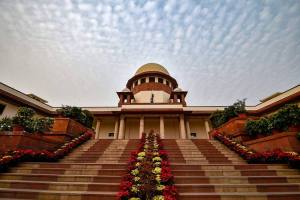
This was one of my earliest blog posts (and also my first post on the India Law and Technology Blog). Unfortunately, the ILTB recently encountered a problem because of which the posts are not accessible, which is why am once again posting it verbatim here. At the time when this was first written, most people did not even know about Network Neutrality, let alone care for it, and it is heartening to see the debate finally reach Indian shores:
“I recently participated in a well known moot court competition on cyber and technology law, the problem for which this year was based on issues pertaining to network neutrality. To summarise the problem in a few words, a domestic Internet Service provider, in collusion with an international Internet service provider, had started providing services in the developing country (the economic condition of the country, especially the status of the telecommunication sector, similar to that of India) which over time was alleged to be derogatory in quality and in contravention to the principles of network neutrality. The service provider also later released a fair usage policy plan which severely limited free unlimited internet access (only 10 GB) despite consumers paying for an unlimited broadband internet access service.
As petitioners, we were not facing any difficulty in conclusively proving that the policies of the service provider were, without a doubt, in violation of the “agreed” principles of network neutrality. A bigger challenge we faced was trying to prove how this was legally wrong and why exactly was the service provider liable in the first place!! After all, even if assuming they had violated the principles of network neutrality, it is a fact (and a very irritating one at that for a lawyer/mooter) that there presently exists no specific legislation, rule, bye-law, etc. which governs the principles of network neutrality and their violation. (If one wishes to site the recent 2010 FCC order on network neutrality, it should be pointed out that the validity of the order is itself questionable in light of Comcast v. FCC. The rules shall be discussed in detail in a separate post). At any rate, there is no law in India to prevent the violation of the principles of network neutrality.
Now in situation such as the above, there is only one sensible path which any decent lawyer shall take in order to substantiate his case with law. And we, believing ourselves to be decent mooters, also decided to do the same. We decided to show the violation of the principles of network neutrality also led to a violation of the fundamental rights of various stakeholders in the internet broadband service.
What is however, surprising is that, as far as we are aware, no other team raised this issue before any bench at any point of time during the duration of the competition, including the teams who made it to the finals (one of the teams came close, but on a careful review one realised that they were taking a different approach to the issue and not one pertaining specifically to the violation of fundamental rights.)
When one realises that one has raised such a unique issue, one feels proud at having taken a path so different from those trodden by others. Or, atleast in my case also starts feeling apprehensive as to whether we raised a flawed contention before the court. Therefore, my intention in typing this post is not only to express by views regarding the law on network neutrality, but to also initiate a discussion on them and more specifically, on how a violation of the principles of network neutrality may result in a violation of the fundamental rights of citizens.
To post specifically, we contended that the violation of the principles of network neutrality resulting from the impugned acts of the respondents resulted in the violation of the fundamental right of websites, viz. the right to trade and occupation of all domestic websites and other start-ups [A], the right of the consumers to choose [B], and the citizens right to impart and receive information [C]. Below is a detailed description of our argument on the above issues, appropriately altered for this blog from the brief. However, the arguments being intrinsically linked to the statement of facts itself, it is admitted that certain portions have been taken verbatim from the brief, and a copy of the problem has also been attached for reference.
A. Violation of right to trade and occupation of the petitioners, other websites and applications on the Internet.
‘Trade’ has been defined by the Supreme Court of India in the case of Sodan Singh v. New Delhi Municipal Corporation[1] as including “any bargain or sale, any occupation or business carried on for subsistence or profit, it is an act of buying and selling goods and services”[2]. Occupation has also been defined as “that which principally takes up ones time, thought and energies, especially ones regular business or employment[3]. It is well known that a website provides services to its consumers in the form of the content or applications available on it. A website depends upon its ISP to enable its consumers to get access to itself. Thus, it logically follows that if the ISP indulges in practices that tend to favour one particular website over another, the website discriminated against loses its interaction with its consumers. Furthermore, due to the violation of the principles of network neutrality, in the long run, such impugned actions shall have the consequence of reducing the amount of innovation in the markets for applications, content and portals at competitive costs to the society[4].
Taking into account the absence of sophisticated technical knowledge about the working of the Internet and the technical intricacies involved in its functioning, consumers are more than likely to put the onus of non-access to a particular application upon the website itself, rather than on the ISP. The ISP may also encourage this as was the case in Comcast v. FCC[5]. This results in a substantial loss of goodwill for the specific application or website among the consumers and individual subscribers.
The above described consequences shall ultimately result in an infringement of the right to trade and occupation of websites and Internet applications.
Furthermore, such practices if allowed shall result in the monopolisation of the network by ISP’s under the garb of claiming a right to practice their trade by blocking certain websites and applications in order to promote either their own Internet applications or other Internet applications favourable to the ISP, further resulting in an infringement of the rights to occupation and trade. Any arguments claiming to rebuff this conclusion as exaggerated shall fail as history has shown a poor track record for last – mile facilities based competition.[6]
B. Infringement of the consumer’s right to choose.
“Article 21 is the heart of the Constitution. It confers right to life as well as the right to choose[7]”. Furthermore, the foremost right of a consumer is to choose from amongst a range of products and services. The consumer’s right to choose is also enshrined under Sec. 6 of the Consumer Protection Act, 1986[8], which states that the consumer has the “the right to be assured, wherever possible, access to a variety of goods and services at competitive prices[9].
In the present case, the impugned actions of the respondents resulted in the denial of the said right to the individual consumer or subscriber of the broadband service as individual subscribers were unable to freely access Internet applications and websites of their choice. Websites like musicforum.com, movieforum.com, et al (members of the group of petitioners) were free and consumers would not have had to bear any costs to view the content of these websites. The content on both websites being similar, it is safe to assume that consumers would prefer the free websites to the paid ones. By disabling its users from accessing the free sites and applications, the respondents infringed upon the individual’s right to choose and to access competitive services of their choice.
C. Infringement of citizen’s right to receive and impart information.
It has been observed by the Supreme Court of India in the case of Secretary, Ministry of Information and Broadcasting v. Cricket Association of Bengal[10] that “the freedom of speech and expression includes right to acquire information and to disseminate it…it is the best way to find a truest model of anything, since it is only through it, that the widest possible range of ideas can circulate…The right to communicate includes right to communicate in any media that is available whether print or electronic or audio-visual.”[11] Further, it has also been observed that free speech is the foundation of democratic society.[12] A free exchange of ideas and dissemination of information without restraints are the basic ideas of free society.[13] A citizen has a fundamental right to use the best means of imparting and receiving information.[14] Network neutrality essentially protects this free speech right.[15]
It has also been recognised by the Supreme Court of the United States that the potential for abuse of this private power over a central avenue of communication such as the Internet cannot be overlooked.[16] The application of the right of the freedom of speech has also been recognised as applicable to the Internet and cyberspace.[17] Any restriction on such expression on the Internet could result in the “beginning of the end of the Internet as we know it.”
In the present case, the respondents arbitrarily without any justifiable cause degraded the performance of certain websites, rendering it virtually impossible for individuals to communicate and interact via the medium of their Internet applications. The problems arising for individual subscribers regarding the popular social networking site Spacepage.com (similar to facebook.com) are particularly troubling in light of the importance of this site for its users as it has come to dominate human social life, with more than 500 million users across the globe. Furthermore, they actively prevented individual subscribers from downloading legally available movies and games, thus resulting in an obstruction to access legal media to further disseminate information and also preventing further interaction with their peers on the Internet through such sites. This denial and restriction of access results in an infringement of the individual’s right to information[18], thus resulting in a violation of freedom of speech and expression of the individual subscriber and consumers.
[1] (1989) 4 SCC 155
[2] ¶ 27, Also see State of Bihar v. Harihar Prasad Debuka, AIR 1989 SC 1119
[3] BLACK’S LAW DICTIONARY 1079 (7th ed. 1999)
[4] See Barbara Van Schewick, Towards an Economic Framework for Network Neutrality Regulation, 5 J. ON TELECOMM. & HIGH TECH. L. 329 (2007). Also see Timothy Woo, Network Neutrality and Broadband Discrimination, 2 J. ON TELECOMM. & HIGH TECH. L. 141(2003) and Jon N. Peha, The Benefits and Risks of Mandating Network Neutrality and the Quest for a Balanced Policy, 1 INT. J. COMM., 644 (2007)
[5] 600 F. 3d 642 (D.C. Cir. 2010)
[6] Trevor R. Roycroft, Economic Analysis and Network Neutrality: Separating Empirical Facts from Theoretical Fiction, available at http://net.educause.edu/ir/library/pdf/EPO0652.pdf (last visited 3rd Jan., 2011)
[7] Smt. Har Naraini Devi v. Union of India, WP(C) 2887/2008, available at http://courtnic.nic.in/dhcorder/dhc_case_status_list_new.asp (last visited Feb. 3, 2011)
[8] CONSUMER PROTECTION ACT, 1986, No. 68 of 1986
[9] § 6(c), CONSUMER PROTECTION ACT, 1986, No. 68 of 1986
[10] (1995) 2 SCC 161: AIR 1995 SC 1236
[11] Supra, ¶ 11
[12] Union of India v. Motion Picture Association, (1990) 6 SCC 150: AIR 1999 SC 2334
[13] Ibid
[14] Ministry of Information and Broadcasting v. Cricket Association of Bengal,(1995) 2 SCC 161, ¶ 24
[15] Moran Yemini, Mandated Network Neutrality and the First Amendment: Lessons from Turner and a New Approach, 13(1) VA. J. L. & TECH. 1 (2008)
[16] Turner Broadcasting System Inc. v. F.C.C., 512 U.S. 622, 657 (1994)
[17] Reno, Attorney General v. American Civil Liberties Union, 521 US 844 (1997)
[18] State of U.P. v. Raj Narain, AIR 1975 SC 865



